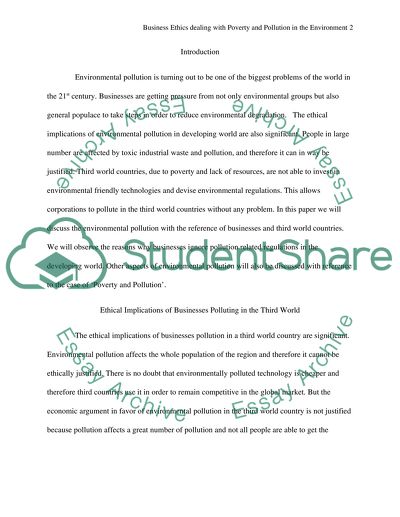Cite this document
(“Business Ethics Dealing with Poverty and Pollution in the Environment Research Paper”, n.d.)
Business Ethics Dealing with Poverty and Pollution in the Environment Research Paper. Retrieved from https://studentshare.org/environmental-studies/1456082-business-ethics-dealing-with-poverty-and-pollution
Business Ethics Dealing with Poverty and Pollution in the Environment Research Paper. Retrieved from https://studentshare.org/environmental-studies/1456082-business-ethics-dealing-with-poverty-and-pollution
(Business Ethics Dealing With Poverty and Pollution in the Environment Research Paper)
Business Ethics Dealing With Poverty and Pollution in the Environment Research Paper. https://studentshare.org/environmental-studies/1456082-business-ethics-dealing-with-poverty-and-pollution.
Business Ethics Dealing With Poverty and Pollution in the Environment Research Paper. https://studentshare.org/environmental-studies/1456082-business-ethics-dealing-with-poverty-and-pollution.
“Business Ethics Dealing With Poverty and Pollution in the Environment Research Paper”, n.d. https://studentshare.org/environmental-studies/1456082-business-ethics-dealing-with-poverty-and-pollution.


